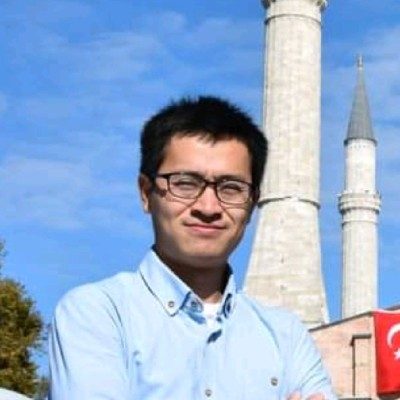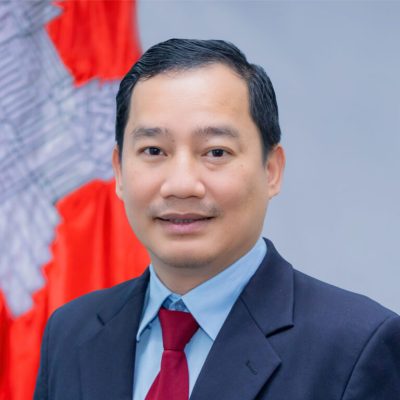PARALLEL SESSION ROOM6
| 10:45-12:15 | AI and Climate Change (Jump to the session) |
| 13:30-15:00 | National AI Governance (Jump to the session) |
| 15:10-16:40 | AI Agents in Practice: Harnessing AI for All (Jump to the session) |
| 17:00-18:30 | AI Trustworthiness and Regulations (Jump to the session) |
AI tools and technologies, including Large Language Models (LLMs), have environmental implications and can also contribute to climate change mitigation. The session will discuss how LLMs, like OpenAI’s ChatGPT and Google Bard, have a significant carbon footprint due to energy-intensive training and operational costs. The presentations uncover LLM development stages contributing to their environmental impact and propose mitigation strategies. It also highlights AI’s synergy with remote sensing for better land observations and disaster identification. Clean energy solutions in transportation, using machine learning to optimize refuelling stations for alternative fuel vehicles, will also be discussed. Additionally, GeoAI applications for conservation and climate change challenges will be showcased. The session aims to accelerate progress towards UN SDGs, demonstrating AI’s transformative potential in environmental sustainability and climate change.

Dong Liu (Chair)
Research Assistant Professor, The Chinese University of Hong Kong

David Daou
Research Manager Climate Risk Modelling, UNU-EHS

Pia Faustino
Director for Social Impact and Sustainability, Thinking Machines

Lei Huang
Associate Professor, Institute of Remote Sensing and Digital Earth, Chinese Academy of Science
This session covers 4 talks centering around AI governance issues at the national level. Four speakers will explore digital governance in different contexts, including models, characteristics, and practice. The speaker will deconstruct the digital governance model in China by comparing it with the EU model, which features rights-driven characteristics. Another speaker will focus on challenges and opportunities in developing AI based on concrete examples and highlighting the significant role of regulation in ensuring AI compliance and user privacy. The speaker will share insights into why and how an informed decision-making process matters for effective AI governance rather than seeking externally imposed standards. The speaker will also present how ASEAN countries shape their AI development infrastructure while balancing the intricate relationship between markets and states and navigating the influence of America and China. In sum, this session contributes to understanding of AI governance issues at the national level.

Sovann EN (Chair)
Director of Digital Government Transformation Department, Digital Government Committee

Rapid Sun
Under Secretary of State at the Ministry of Post and Telecommunications of Cambodia
Xuechen Chen
Assistant Professor in Politics and International Relations, Northeastern University (London)

Yuting Tan
PhD Candidate, University of Macau, Major: International Business Law and Dispute Resolution

Sami Farhad
Senior Lecturer of the Global Engagement Program of Zhejiang University, and Advisor to the Alibaba Group
Binyi Yang
The burgeoning field of Large Language Models (LLMs) presents a novel paradigm in autonomous Agents’ development, heralding significant impacts across diverse sectors. This interdisciplinary study synthesizes the latest advancements in LLM-based Agents, spotlighting their pivotal role in fostering sustainable development, enhancing capacity building, and revolutionizing the creative industry. Combining perspectives from computer science, we have thoroughly reviewed the technical development and cutting-edge progress of Agent-Based Modeling and LLM-based Agents, particularly highlighting their applications and potential in the fields of social simulation and computational social science, underscoring their potential in addressing critical global challenges, including environmental sustainability, health, and education, thereby accelerating the achievement of Sustainable Development Goals (SDGs). Our interdisciplinary team consists of individuals from China and Japan with expertise in computer science, international law, international development, film production, new media, and the internet industry. Our exploration extends to the multifaceted applications of LLM-based agents in sustainable governance and management, particularly explored dynamic individual and group behaviors in both synthetic and physical environments, highlighting agent-based modeling’s capacity to simulate complex social-environmental interactions and inform policy-making for sustainable outcomes. We further investigate the integration of multimodal perceptions, leveraging agents’ abilities to serve as reasoning and planning cognitive core, and process and generate text, image, video, and audio in the context of addressing global challenges in environmental health, climate change, and labor. We analyze the cognitive and behavioral learning systems demonstrating LLM agents’ utility in sustainable negotiation and decision-making processes. The discussion extends to the regulatory frameworks essential for managing external tools, data access, and actions taken by autonomous agents, aligning with digital law and global governance to ensure ethical and equitable deployment of AI Agents. Furthermore, we explore the risks and precautions against the misuse of intelligent autonomous weapons, emphasizing the pivotal role of international NGOs in AI security governance. Furthermore, we delve into the transformative use of LLM-based agents in the creative industries, particularly in multimodal storytelling, where advanced text-to-image and text-to-video generation techniques are applied, showcasing the profound impacts on film and television production in the context of designing sustainable solutions for media and information literacy. In conclusion, this study articulates the transformative potential of LLM-based agents across sectors, advocating for a multi-stakeholder dialogue to harness AI’s power responsibly and inclusively. By bridging technological innovation with ethical governance and creative applications, LLM-based agents stand as a cornerstone in the pursuit of a sustainable future, embodying the essence of “AI for All.”

Jia An LIU (Chair)
Research Fellow, UNU Macau, Zhejiang University, China

Chu CHU
Communications Fellow, UNU Macau, Ph.D. Candidate, Fudan University, China

Zhiqing XIAO
Ph.D. student in Computer Science at Zhejiang University

Goshi Aoki
Master’s in Computer Science at Zhejiang University

Yilin ZHAO
Ph.D. Candidate in International Law at Zhejiang University

Guiqiong CHEN
M.A. in International Organization and Global Engagement from Zhejiang University

Liting CHEN
Master’s Student, International Organizations & Global Development, Zhejiang University & University of Manchester

Yanzhuo LI
Ph.D. student in International Affairs and Global Governance at the Department of Political Science, School of Public Affairs (SPA), Zhejiang University
AI and Trustworthiness are inextricably linked, as responsible development and deployment of artificial intelligence (AI) require robust safety measures. The session covers various aspects of AI regulation and application from diverse speakers and points of view. Firstly, it emphasizes the need for global AI regulation, aligning with Sustainable Development Goals (SDGs) and proposing institutional reforms to enable this. Secondly, it discusses Trusted Third Parties’ role in ensuring AI safety and reliability. Thirdly, it addresses legal debates around copyrighted material in AI training data. Lastly, it warns about Large Language Models (LLMs) and highlights user competence in evaluating LLM-generated content. The session offers critical insights into the complex landscape of AI regulation, application, and societal implications.

Mamello Thinyane (Chair)
Associate Professor at the University of South Australia, Australia

Wayne Wang
Non-Resident Fellow, Fundação Getulio Vargas; PhD Candidate, University of Hong Kong

Eliza MIK
Assistant Professor of Law, Chinese University of Hong Kong

Jeff Cao
Senior research fellow at Tencent Research Institute

Jamie Brennan
Chief Product Officer DDX & Digital Transformation Specialist (AI) IOM
